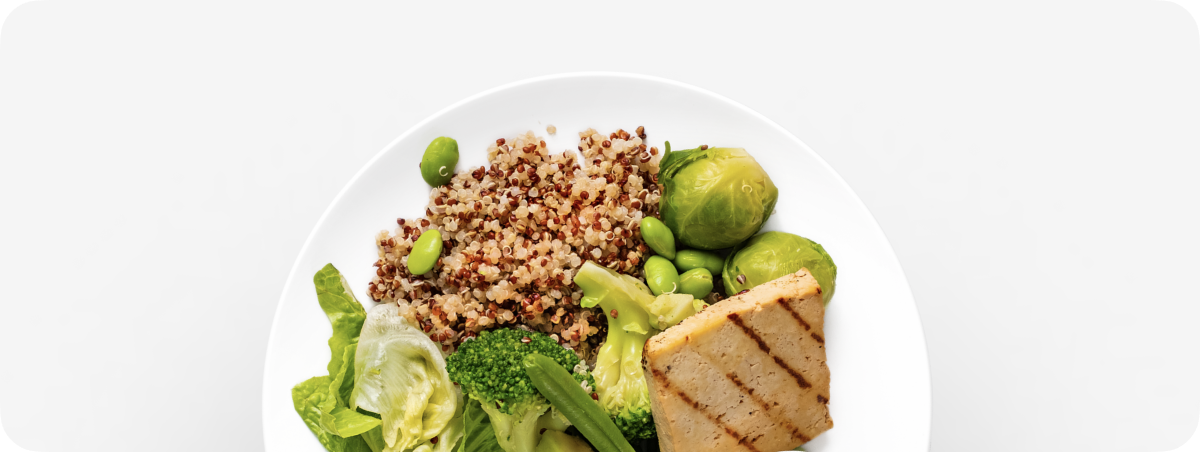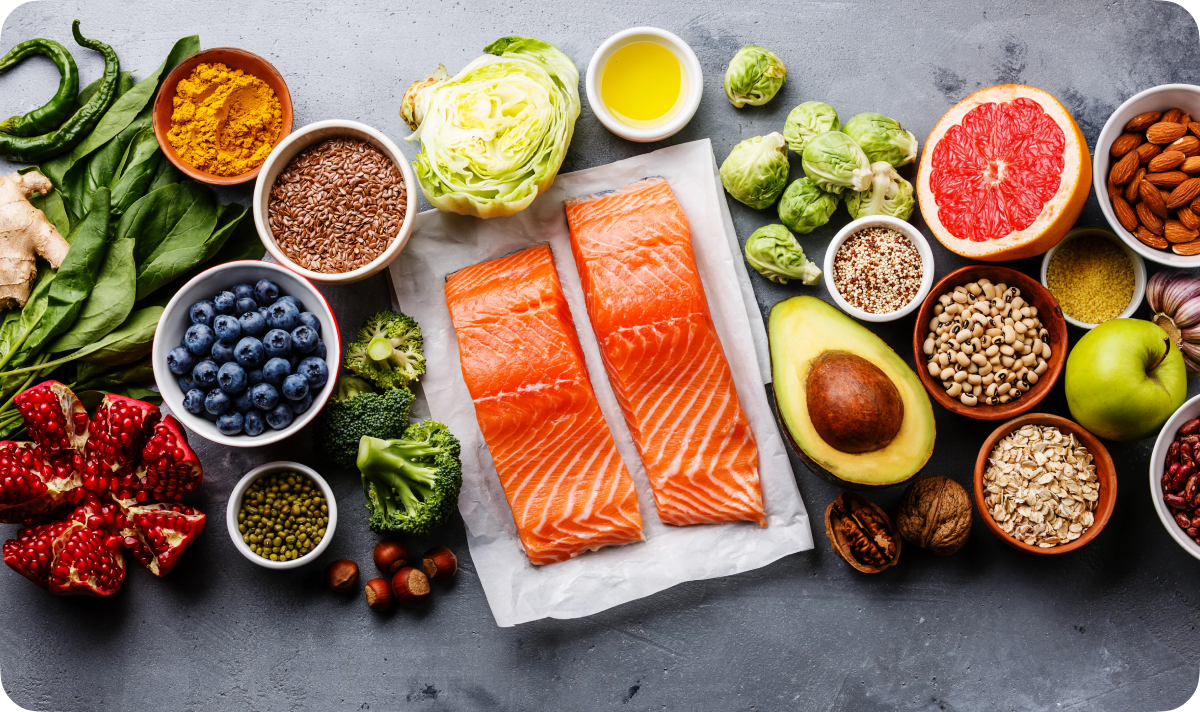Losing weight can be a difficult and time consuming process, but it doesn't have to involve risks to your body. It is possible to lose weight in a safe and healthy way by taking a few simple steps. In this article, we will explore how to lose weight without hurting your body and provide tips for successful and sustainable weight loss.
What are some healthy ways to lose weight?

When it comes to losing weight in a healthy way, there are a few key steps you can take. First, focus on changing your diet and eating habits. Eating whole, unprocessed foods as much as possible, such as fruits and vegetables, whole grains, lean meats, and healthy fats, can help you lose weight. Additionally, limiting your intake of added sugars and refined carbohydrates can be beneficial. Secondly, exercising regularly can help you burn calories, which can lead to weight loss. Incorporating both aerobic and strength-training exercises can help you achieve your goals. Lastly, make sure to get enough sleep and to manage your stress levels. Proper rest and relaxation can help prevent overeating and keep your body in balance. By following these steps, you can reach your weight loss goals in a healthful manner.
What tips can I follow to lose weight safely and healthily?
If you’re looking to lose weight safely and healthily, there are several tips you can follow. First, focus on creating a calorie deficit. This means consuming fewer calories than you burn so your body has to use its energy reserves, which leads to weight loss.
Second, make sure to focus on eating a nutritious and balanced diet. Incorporate plenty of lean proteins, healthy fats, fruits, vegetables, and whole grains. Avoid overly processed foods, fried foods, and added sugars.
Third, stay active. Regular physical activity is important for weight loss and overall health. Aim for at least 150 minutes of moderate-intensity aerobic activity each week, such as walking, jogging, or swimming. You can also add strength training exercises to build muscle and tone your body.
Finally, make sure to pay attention to your mental health. Weight loss is a journey, and it’s important to be patient and kind to yourself. Set realistic goals and celebrate your successes along the way. Don’t be too hard on yourself if you make mistakes or don’t see results right away.
How can I reduce my calorie intake without sacrificing nutrition?
If you're looking to reduce your calorie intake without sacrificing nutrition, there are a few simple strategies you can use. First, focus on incorporating more nutrient-dense, low-calorie foods into your diet. This includes foods like lean protein sources, such as skinless chicken or fish; high-fiber fruits and vegetables; and whole grains.
Another tip is to replace high-calorie snacks with healthier alternatives. Instead of reaching for chips or chocolate, opt for a piece of fresh fruit or a handful of nuts.
Finally, be mindful of the portion sizes of your meals. Eating smaller portions can help to reduce your overall calorie intake without sacrificing nutrition.
What type of exercise can I do to lose weight without damaging my body?

If you are looking to lose weight without damaging your body, there are many types of exercise that you can do. Cardiovascular exercises such as running, biking, and swimming can help burn calories and improve your overall cardiovascular health. Strength training exercises such as squats, weights, and bodyweight exercises can help build muscle and burn fat. Additionally, yoga can help you build flexibility, strength, and core stability. Finally, Pilates can help you improve your posture and balance, while also burning calories and aiding in weight loss. All these exercises can be done safely and effectively to help you lose weight without damaging your body.
What tips can I follow to eat a balanced diet while losing weight?
Eating a balanced diet is an important part of maintaining a healthy lifestyle and successful weight loss. Here are some tips to help you get started:
1. Eat more fruits and vegetables. Fruits and veggies are low in calories and packed with nutrition. Make sure to fill half of your plate with them at each meal.
2. Choose lean proteins like fish, chicken, and beans. Protein is an important component of a balanced diet and helps to keep you feeling fuller for longer.
3. Incorporate healthy fats into your diet. Healthy fats, like those found in avocados, nuts, and seeds, will keep you feeling full and can even help you lose weight.
4. Reduce your intake of processed and refined foods. These foods are usually high in sugar, sodium, and unhealthy fats, which can lead to weight gain.
5. Drink plenty of water. Water helps to keep you hydrated and can also help to control your hunger. Aim to drink at least 8 cups of water throughout the day.
Following these tips can help you to eat a balanced diet while losing weight. Remember, though, that lasting weight loss takes time and consistency. Be patient with yourself and stay motivated!
What food should I avoid to lose weight without compromising my health?

If you're looking to lose weight without compromising your health, there are certain foods you should avoid. Processed foods such as chips, candy, and soda should be avoided since they are often full of sugar, salt, and unhealthy fats. Fried foods like French fries and fast food should also be avoided as they are high in calories and unhealthy fats. Instead, focus on eating foods that are high in protein and fiber, such as lean meats, fish, eggs, beans, and whole grains. Make sure to include plenty of fruits and vegetables in your diet, as they are full of vitamins and minerals. Finally, limit your intake of sugary drinks such as sports drinks, juices, and sodas, and try to drink mostly water. By doing so, you can lose weight without compromising your health.
How can I stay motivated to lose weight and keep it off?
Staying motivated to reach any long-term goal can be difficult, especially when it comes to losing weight and keeping it off. To stay motivated, it helps to set realistic and achievable goals. Think about what you want to accomplish, and then break it down into smaller steps. Celebrate your successes along the way, no matter how small.
It can also be helpful to create a vision board or a list of all the benefits you’d gain from achieving your goal. Read it often to remind yourself of why you’re doing this and the rewards that come with it.
In addition, exercise is a great way to stay motivated. Find activities that you enjoy doing, and make it a habit to be active every day. Exercise can help increase your energy levels and boost your mood, making it easier to stick with your plan.
Finally, don’t forget to reward yourself when you reach a milestone. Whether it’s a massage, a new outfit, or a night out with friends, rewarding yourself can help keep you motivated to keep going.
How Meditation and Intermittent fasting Can Help with Weight Loss

Meditation is a powerful tool for losing weight that often gets overlooked. Not only does meditation help reduce stress levels and improve mental clarity, but it can also be a powerful tool for weight loss. Studies have found that regular meditation can reduce cortisol levels, which can help to control cravings and reduce stress eating. Additionally, practicing mindful eating can help you become more aware of your hunger cues, making it easier to stick to a healthy diet.
Intermittent fasting is another great way to combine meditation and weight loss. Intermittent fasting is an eating pattern that involves alternating periods of fasting and eating. During the fasting period, it’s important to focus on relaxation, stress reduction, and mindfulness. Regular meditation can help to reduce hunger and make fasting easier, as well as improve your overall mental and physical health.
Meditation and intermittent fasting can also be combined to improve your overall health and well-being. During the fasting period, use the time to practice mindful meditation to reduce stress and become more aware of your hunger cues. This can not only help you lose weight, but also improve your mental clarity and focus.
In summary, meditation and intermittent fasting can be a powerful combination for achieving weight loss. Not only can regular meditation help reduce stress levels and control cravings, but it can also help to become more aware of your hunger cues and make fasting more manageable. By combining meditation and intermittent fasting, you can achieve your weight loss goals and improve your
Microbiome Test and Losing Weight
f you’re looking for a way to kickstart your weight loss journey, considering a microbiome test may be a great option. A microbiome test is a simple test that can help identify the microorganisms in your gut and how they may be impacting your health. By understanding your gut microbiome, you can make the necessary changes to boost your metabolism and improve your overall health.
The bacteria in your gut play a crucial role in your metabolism and weight loss. By assessing your gut microbiome, you can identify beneficial bacteria that can support your weight loss journey. For example, some bacteria can help break down food more efficiently, leading to better nutrient absorption and improved metabolism. Additionally, friendly bacteria can help regulate your appetite and cravings, making it easier to stick to a healthy diet.
Another benefit of microbiome testing is that it can help identify any potential gut infections or imbalances that could be hindering your weight loss efforts. By taking action on any identified imbalances or infections, you can improve your gut health and boost your metabolism.
If you’re looking to lose weight, considering a microbiome test may be beneficial. By understanding your gut microbiome, you can make the necessary changes to support your weight loss goals and improve your overall health.











